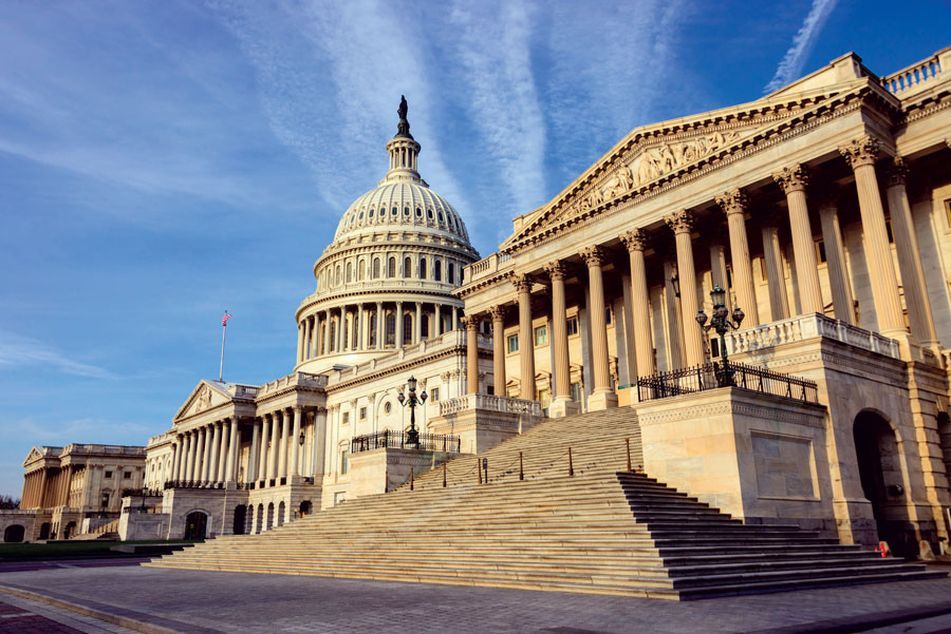Insured Retirement Institute seeks to build on SECURE 2.0 wins

The annuity sector trade association is advocating for legislation that would mandate retirement plans for small employers that don't have them, as well as bills that would increase the use of annuities.
Retirement savings advocates scored a big win late last year when Congress approved sweeping legislation to bolster Americans’ nest eggs. One trade association is returning to Capitol Hill this year to complete what it says is unfinished business.
The SECURE 2.0 bill contained more than 90 provisions designed to increase the number of people saving for retirement as well as the size of their accounts. It built on its legislative predecessor, the SECURE Act, which was enacted in 2019.
Read more: What is the SECURE 2.0 Act and how is it different from the SECURE Act of 2019?
Although SECURE 2.0 expands the availability of workplace retirement plans, the Insured Retirement Institute says more must be done to help Americans who work for companies that don’t offer retirement programs — which is about half of U.S. employers.
One of the priorities in IRI’s 2023 Federal Retirement Security Blueprint is a bill that would require all but the smallest employers to establish an automatic retirement savings plan for their workers. Employees would have an opportunity to opt out.
Such a bill was introduced in the last Congress by Rep. Richard Neal, D-Mass., when he was chairman of the House Ways and Means Committee. He tried to add it to so-called reconciliation legislation, but it dropped out before the bill became the Inflation Reduction Act, thanks in part to Republican resistance.
Republicans now control the House, which presents a potential obstacle to automatic retirement plan bills.
“Right now, it’s a challenging environment, particularly on the House side, to win approval, I think, of the idea that is embodied in the blueprint,” Paul Richman, IRI chief government and political affairs officer, told reporters Monday.
But Richman said the SECURE bills created incentives for employers to establish retirement plans that could be built upon in additional legislation.
“We think that there is a lot of movement over the years to accepting some of these ideas on both sides of the aisle,” he said. “And we’re going to continue our efforts to educate and inform members of Congress about why we think this is a good solution to the coverage gap.”
The IRI represents annuity providers, so its lobbying agenda contains many legislative priorities to boost guaranteed lifetime income approaches to retirement savings. For instance, as part of the auto-IRA bill it would like to see a provision that allows workers with more than $200,000 in savings to allocate up to half of that sum to an annuity.
Other bills on the IRI wish list include those that would make it easier to use annuities as default investment and distributions options. Another bill the group is pushing would allow the use of indexed and variable annuity contracts in qualified longevity annuity contracts.
These reforms “would help to address further concerns workers and retirees have about outliving their retirement savings,” Richman said.
In the debate over raising investment advice standards for retirement accounts, annuities have long been cited as an example of complex products with high fees that can harm investors.
That attitude can still be found among lawmakers but is declining, Richman said.
“Over time, this is changing as more and more policymakers are realizing that the best way to recreate the defined-benefit pension from the savings folks are accumulating in their workplace retirement plans is through the use of protected lifetime guaranteed products and solutions the marketplace now offers,” he said.
On the regulatory side, IRI is trying to persuade the Department of Labor not to propose another iteration of its fiduciary rule for retirement accounts.
The organization argues that the Securities and Exchange Commission’s Regulation Best Interest and a revised annuity suitability rule from the National Association of Insurance Commissioners are adequately protecting investors when they make decisions about rolling funds from a workplace retirement plan over to an individual retirement account.
It also notes recent court rulings against the agency’s guidance that asserted that a one-time rollover decision triggered a fiduciary relationship between an advisor and customer.
“We strongly believe the DOL should not pursue any further rulemaking at this time,” said Jason Berkowitz, IRI chief legal and regulatory affairs officer.
Learn more about reprints and licensing for this article.








